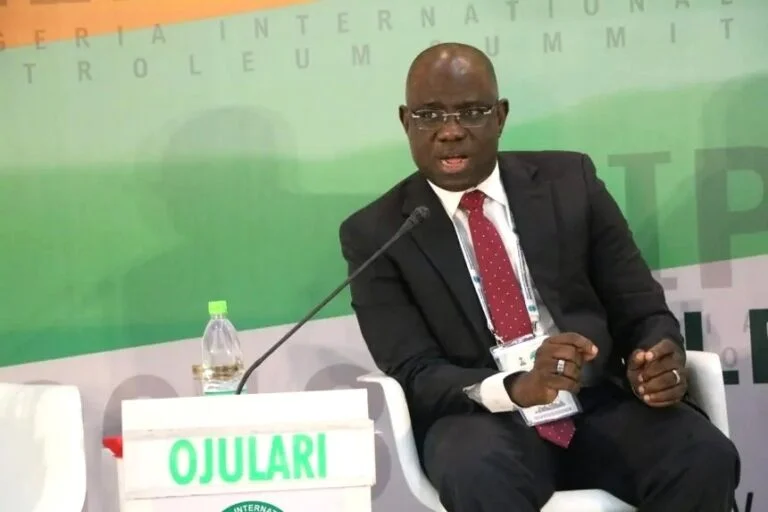The Nigerian National Petroleum Company Limited (NNPCL) has announced plans to attract 60 billion dollars in new investments over the next five to seven years to expand the country’s gas infrastructure.
Mr Bayo Ojulari, Group Chief Executive Officer of NNPCL, disclosed this while addressing participants from 150 countries at the opening of the Gastech Exhibition and Conference in Milan, Italy.
He said the Federal Government was pursuing the investment to drive industrialisation and strengthen Nigeria’s role in the global energy market. According to him, the plan aims to raise natural gas production to 12 billion cubic feet per day and expand refining capacity to meet rising global demand.
“We are seeking at least 60 billion dollars in investment over the next five to seven years, which for our oil and gas industry is just the tip of the iceberg. We are seeking investors to grow production,” he said.
Ojulari explained that the Petroleum Industry Act (PIA), signed into law in 2021, had transformed NNPC into a limited liability company, enabling it to access direct funding and form global partnerships.
He noted that the company was currently producing about 1.6 million barrels of crude oil per day, with targets of 2 million barrels by 2027 and 3 million barrels by 2030.
He highlighted ongoing projects, including the Ajaokuta–Kaduna–Kano (AKK) pipeline, the extension of the West African Gas Pipeline to Morocco and Europe, and the expansion of the Nigeria LNG project. Nigeria already supplies 60 per cent of LNG to Portugal and Spain and is currently building Train 7, expected to be completed in 2026, with plans for Trains 8 and 9.
On clean energy, Ojulari said government initiatives include the rollout of 2 million LPG cylinders and a Compressed Natural Gas (CNG) transition scheme for vehicles and machinery.
He added that geopolitical shifts such as the Russia-Ukraine war had accelerated regional pipeline projects, with Nigeria hosting investments from companies including ExxonMobil, Chevron, Shell, Agip and Total. “Nigeria is a global market. While foreign policies do impact us, our focus is on creating a stable market and building the right partnerships,” he said.
Also speaking, Minister of State for Petroleum Resources (Gas), Mr Ekperikpe Ekpo, reaffirmed Nigeria’s commitment to leveraging its vast reserves to promote industrialisation, regional integration and global energy security.
He said natural gas remained central to the country’s energy strategy, supporting industries, clean cooking, agriculture, job creation and public health. “Nigeria as a gas nation is committed to using our natural gas to serve our economy, our continent, and other parts of the world,” he assured.
Ekpo added that the Nigeria Liquefied Natural Gas (NLNG) project was set to raise capacity from 22 million metric tonnes per annum (MTPA) to 30 MTPA with Train 7, while Nigeria was also pursuing the Nigeria–Morocco Gas Pipeline and the Trans-Saharan Gas Pipeline to enhance regional energy interconnectivity.
With an estimated 210 trillion cubic feet of gas reserves, he said the government had introduced regulatory reforms and executive orders to attract investors. “Our natural gas is the bridge to renewables, and the anchor point for developing countries like Nigeria to ensure we are not left behind in the global energy transition,” he said.
(NAN)


